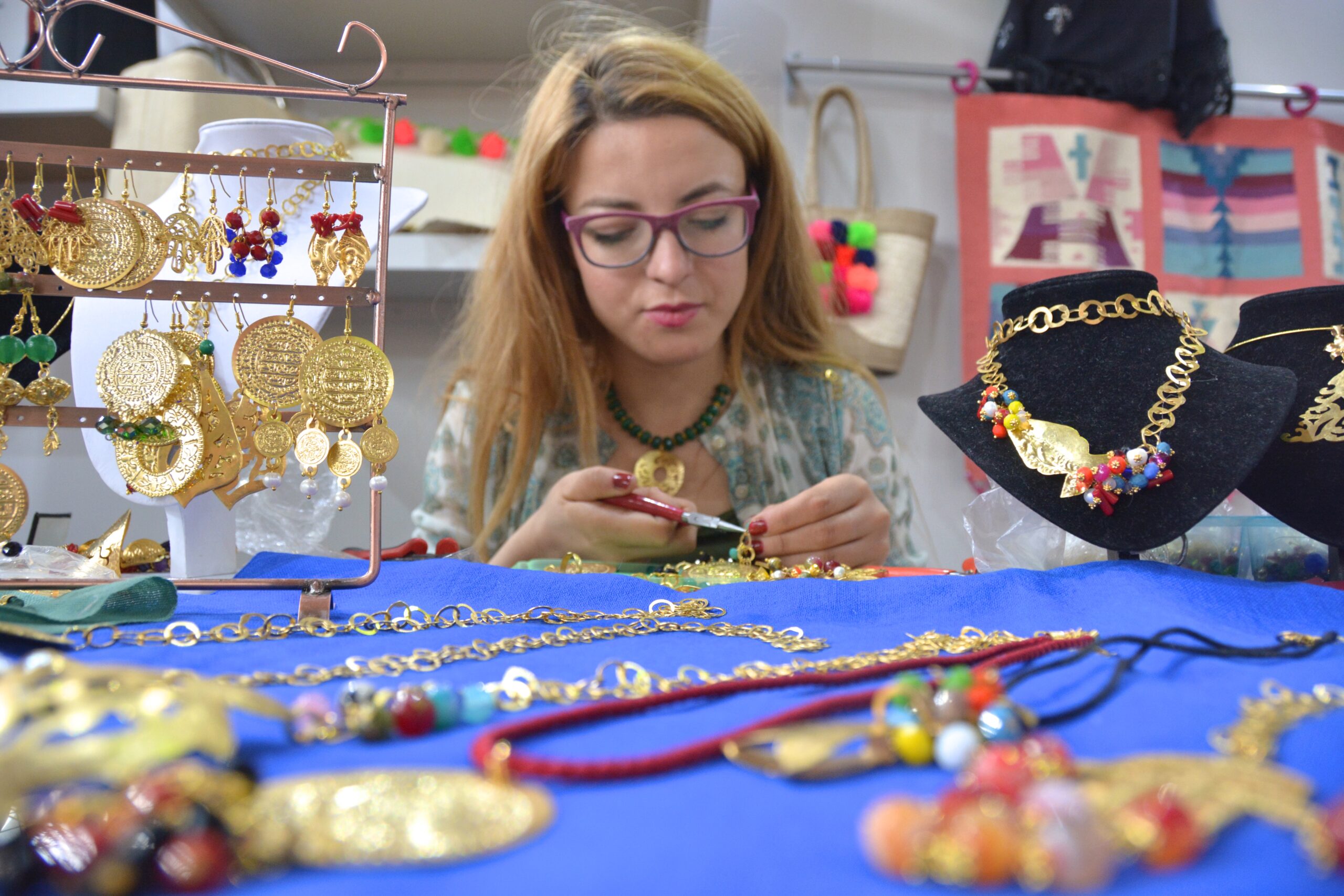
About
WES Approach
The Women’s Enterprise for Sustainability (WES) was designed by the Institute of International Education (IIE) and implemented in collaboration with partner organizations across Tunisia from 2012-2018. WES was funded by the United States Department of State.
Strengthen Women-Led Organizations
WES provided training, curricula and support to partner organizations in Tunisia, enabling them to operate WES Centers for Women’s Business Development using a cost-recovery business model. A team of trainer/coaches at each center provided business development services. By charging nominal fees for services, WES Centers increased their own sustainability and reach, while supporting women entrepreneurs in their communities.
Access to Training, Networks and Finance
Through WES centers, aspiring and established women entrepreneurs were able to access affordable training, coaching and financial services, enabling them to launch and grow businesses. WES entrepreneurs form networks committed to sharing resources, creating strategic alliances and advancing professional opportunities.
Accelerator and Business Growth Initiative
WES-Up, an accelerator and business growth initiative, offered women entrepreneurs a path to business growth. Through one-on-one coaching, technical assistance, strategic growth planning and networking opportunities, women entrepreneurs reached new markets, forged partnerships, developed products or services, and gained access to financial resources. Select entrepreneurs also had the opportunity to make a pitch to venture capitalists and other potential funders to obtain more funding.
WES-Up is offered at WES business development centers in Bizerte, Kef, Tunis, Sfax, Kairouan, Gafsa, Tozeur, Zarzis and Tataouine. Of note, the WES Center in Sfax has a particular focus on supporting women’s entrepreneurship in STEM fields.
Tunisia
Tunisia has been in a period of transition since the country’s 2011 revolution. As Tunisians celebrate their democratic political transition, many are focused on building better lives for themselves and their communities – finding suitable jobs, putting food on the table, providing a good education for their children and securing a peaceful society.
In Tunisia, women represent 60% of all university students and graduate at higher rates than their male counterparts. Yet in 2012, only one in four women was active in the national labor market. Given their higher educational attainment, the relatively low numbers of women in the formal economy represents a significant loss for Tunisia.
Entrepreneurship is increasingly recognized as an important factor for economic growth and development across the globe. In the MENA region, where female labor force participation rates are among the lowest, entrepreneurship can offer opportunities for women to actively participate in the economy. Tunisia has one of the highest rates of women entrepreneurs in MENA with sole ownership of their firms (55%) and Tunisian women-owned companies had the highest recruitment rates in the region, employing an average of 19 workers per firm, according to a 2012 study. Despite these signs of success, Tunisian businesswomen cite a number of barriers, in addition to the same challenges their male peers encounter. A general culture that was seen as resistant to women’s entrepreneurship was cited in a recent survey of Tunisian women entrepreneurs as the number one barrier to reaching their full potential. Family obligations and limited business networks were other obstacles often mentioned by survey respondents.
At 39%, Tunisia is the second most active country in Africa in terms of internet penetration. About one-third of the population is active on Facebook (and 42% of the Facebook users are women). However, e-commerce, an important tool for many entrepreneurs, remains very limited due to conversion restrictions on the Tunisian Dinar.
With the support of the United States Department of State Bureau of Near Eastern Affairs, IIE designed the WES program to support women’s entrepreneurship and build the capacity of civil society to secure equal rights and opportunities for women.
